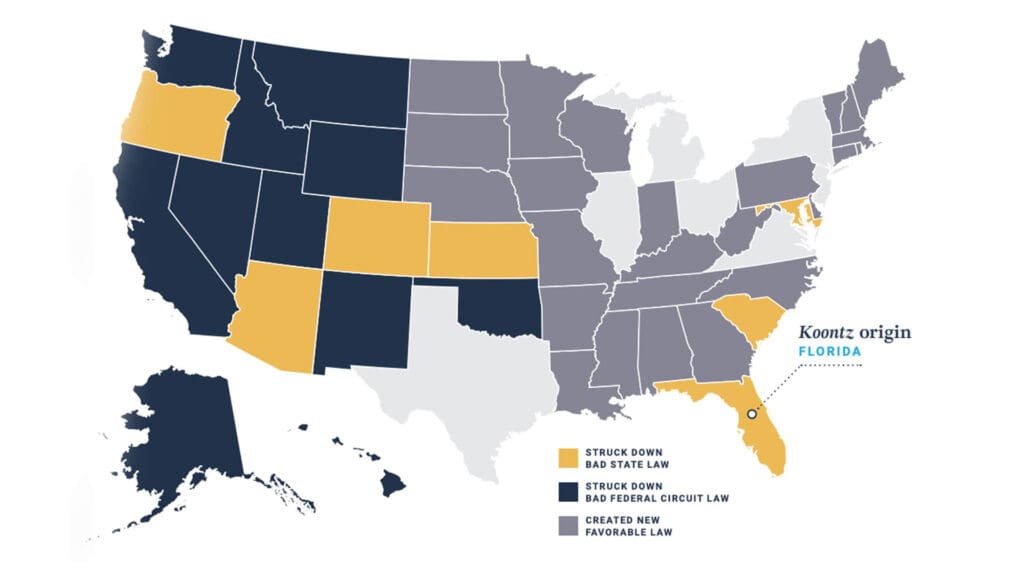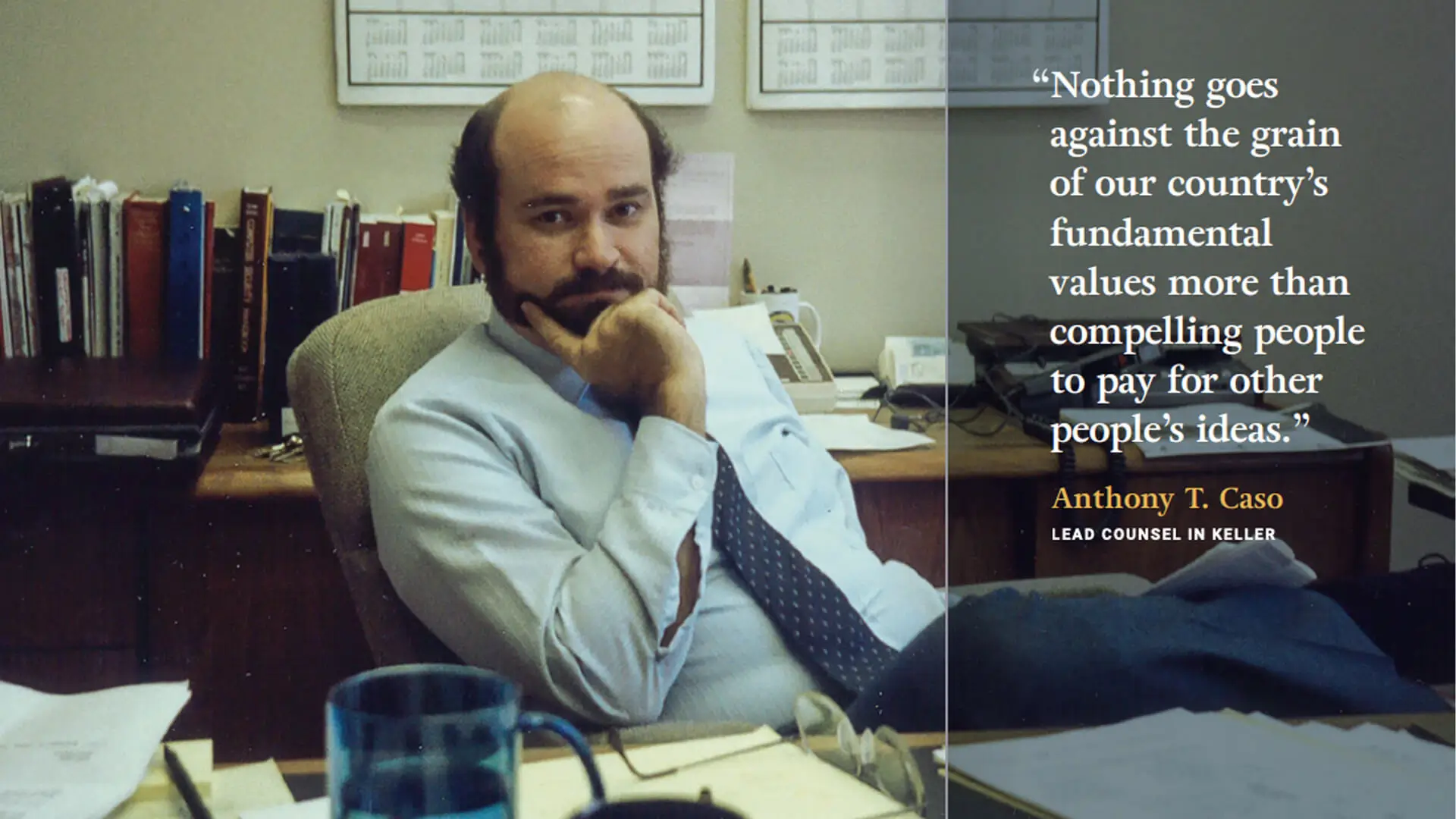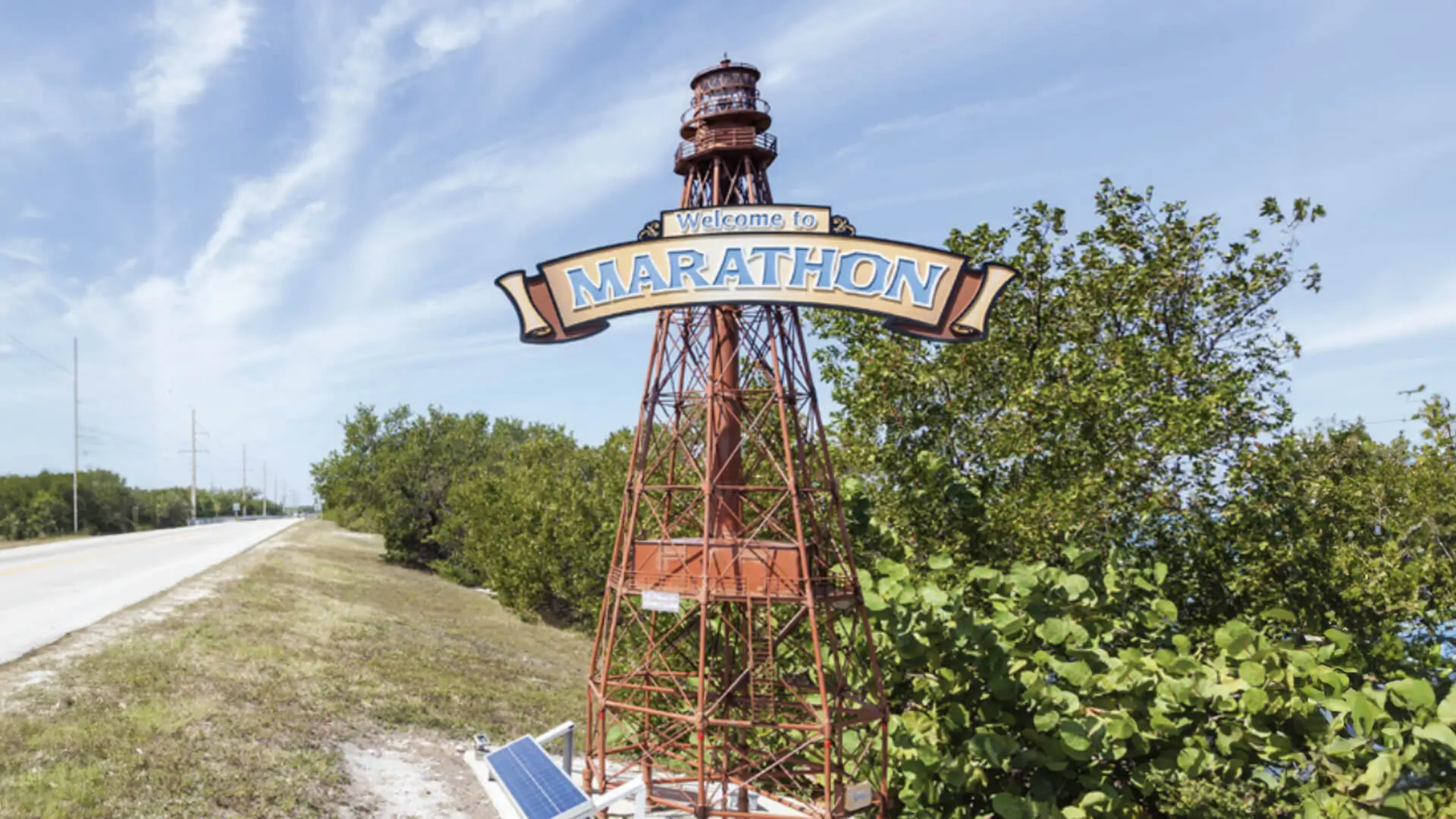Nollan Outcome • In 1987, PLF won the Nollan case at the Supreme Court of the United States. That decision holds that when a property owner seeks a government permit, the government may not condition the permit on the uncompensated surrender of a public easement, unless it is necessary to mitigate harm caused by the property use. Nollan reversed a California court decision which had held that government could demand any property it desired from a permit applicant, so long as the taken property would be useful to the public. Nollan established a uniform federal precedent for protecting property rights in 30 states (20 states already had such protections in place).
What’s more, Nollan is now taught in every law school curriculum on land use.

KOONTZ OUTCOME • Following Nollan, many states tried to evade the limits on government extortion by demanding cash instead of easements or other dedications. In 2013, PLF won the Koontz case at the Supreme Court, which holds that any government demand for money or property from a permit applicant must comply with Nollan. In doing so, the Court established a new uniform federal rule that improved the law in 40 states: Nollan applies to all permit conditions.
States follow PLF’s property rights lead
Nollan 1987
28 States Opposed
Murr 2017
9 States Supported
9 States Opposed
When PLF argued Nollan at the Supreme Court, many states sided with California and none supported PLF. But our work in this area has improved how state governments view property rights, and by the time PLF argued Murr in 2017, opposition from states dwindled by 66%, while an equal number of states actually supported our position.






